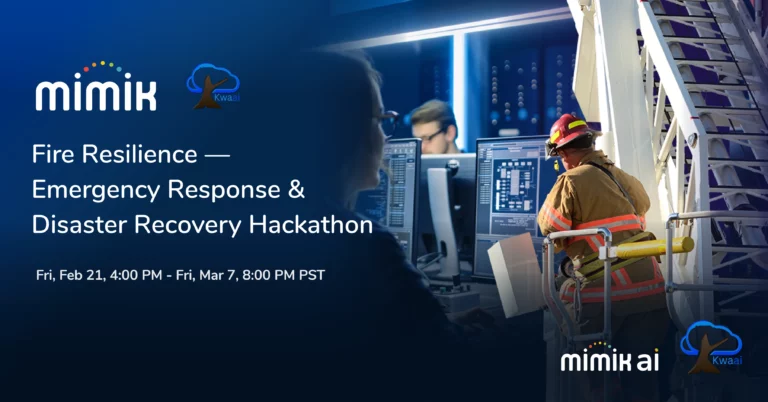Thank you to all the brilliant developers, first responders, and partners who joined us to push the boundaries of what’s possible in disaster tech.
Over two transformative weeks, the Fire Resilience — Emergency Response & Disaster Recovery Hackathon empowered innovators worldwide to build offline-first, edge-native AI solutions for real-world emergencies. Hosted by mimik and backed by Kwaai’s at the 22nd Annual Southern California Linux Expo, this hackathon marked a turning point in how distributed intelligence can support frontline response.
Real Impact, Built with mimik
Participants leveraged mim OE™ (mimik’s core hybrid edge platform) to develop resilient, autonomous applications capable of operating without constant connectivity — a critical feature in fire-prone and disaster-affected regions.
From real-time coordination tools for emergency responders to AI-powered preparedness apps, the event showcased the power of agentic systems that think, act, and collaborate on end-point devices, where response matters most.
Highlights:
- 40+ teams built and submitted working prototypes across two tracks:
• Emergency Management & Preparedness
• Personal AI Apps for Resilience - $20,000 in prizes awarded, including deployment support and tech grants
- 1:1 mentoring from disaster-tech experts, LA firefighters, and AI engineers
- Live demos at SCaLE22x and an exclusive investor showcase
Why mimik?
At the heart of every winning solution was mimik’s decentralized AI infrastructure, enabling secure, scalable, and network-independent performance across devices. Whether in remote forests or dense urban environments, mimik empowers developers to build where data lives and action is required.
What’s Next?
Several standout teams are now fast-tracking deployment with support from mimik and our partner network. We’re excited to continue collaborating on scalable solutions that strengthen community resilience and emergency preparedness.
Want to build next-gen AI that works offline, on the ground, and in real time?
👉 Join the mimik developer ecosystem
